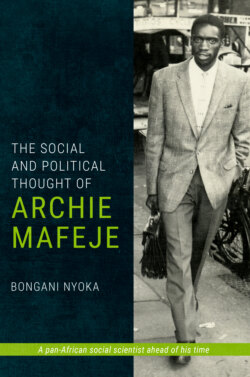The Social and Political Thought of Archie Mafeje

Реклама. ООО «ЛитРес», ИНН: 7719571260.
Оглавление
Bongani Nyoka. The Social and Political Thought of Archie Mafeje
Отрывок из книги
The Social and Political Thought of Archie Mafeje
Bongani Nyoka
.....
In his second impression on the concepts of tribalism, Mafeje writes that African intellectuals believe that the European assumption that there is tribalism in Africa reflects the usual European stereotypes derived from colonialism.37 Significantly, this leads to an ideological and epistemological disjuncture between African intellectuals and their Western counterparts. Mafeje goes on to argue that the problem ‘is not to decry a spurious category called “tribalism” but to confront the problem of cultural pluralism within modern nation-states which, deriving from the European historical antecedent, are supposed to be unitary. What is called “tribalism” in Africa is often an attempt by disadvantaged sociocultural groups to gain more social space within the given political and economic setup. In the circumstances, democratic pluralism is at issue rather than a dictatorial insistence on misconceived unitarism.’38
Mafeje suggests that with democratic pluralism tribalism would wither away; yet this ignores the patent reality that democracy does in fact facilitate a resort to narrow jingoism in mobilising support or articulating grievances. There is little evidence that democracy necessarily attenuates tribalism. Mafeje modified his earlier position on tribalism; he oscillated between cultural pluralism and democratic pluralism. It is far from clear that the two are the same or that the existence of one necessarily entails the existence of the other. Mafeje did not quite spell out what he really had in mind when he invoked the notion of pluralism. In an article titled ‘The Bathos of Tendentious Historiography’, he says that ‘in recent years there has been an observable social drift toward democratic pluralism … Democratic pluralism is more of a social than a political concept. For instance, it does not mean “multipartyism” but, rather, the right of people(s) to form their own organisations for self-fulfilment and for having a direct input in the formulation of national policy regarding things that affect them.’39 He did not use pluralism as it was used by anthropologists and subsequently criticised by Magubane.
.....